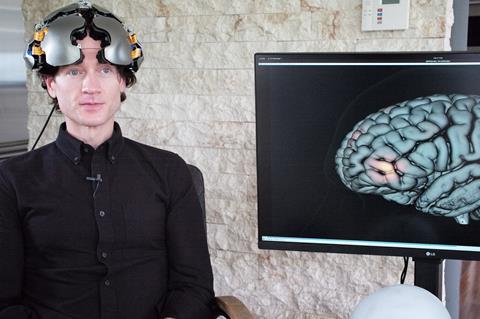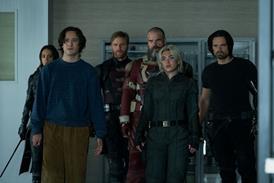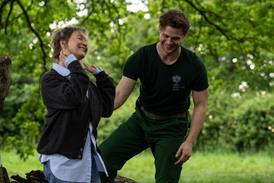Werner Herzog’s latest documentary is a wide-ranging road trip through the workings of the human brain

Dir/scr: Werner Herzog. US. 2021. 107 mins.
Werner Herzog remains the man with a thousand questions. Theater Of Thought is propelled by his insatiable curiosity. A wide-ranging road trip through the workings of the human brain, it explores how current research could provide a breakthrough on a par with the unlocking of human DNA. Herzog’s ability to balance intellectual rigour with quirky human touches ensures a documentary that is utterly fascinating, even if the average viewer’s little grey cells might struggle to always keep up. The director’s loyal fan base and far beyond will respond to this soulful feast of neural stimulation.
Those interviewed are pioneers and shapers of a brave new world
Herzog begins with a quote he ascribes to Chuck Berry: ”In my Theatre Of Thought, I am rocking, In the Dance Of My Mind, I am swinging. C’mon, babe, roll over to me.” He then joins scientist Rafael Yuste in exploring the mysteries of the human brain. There are trips to Germany and Chile, but the bulk of the film takes place in America, where Herzog seeks out an impressive selection of scientists, researchers, philosophers, venture capitalists and human rights lawyers. He quizzes them on their areas of expertise but also finds a way to humanise them. Christof Koch, from the Allen Institute for Brain Science, finds a serenity rowing on a lake. Dario Gil, Head of Research at IBM, likes to fish.
The filmmaker has the ability to ask questions that range from the direct to the fanciful, but all of them prompt a response that moves the film forward. Do fish have dreams? Could we communicate with animals? How stupid is Siri? Why are so few women involved in mathematics? We learn about research in quantum computers, optogenetics, nanoparticles, calcium imaging, and of advances in the brain/computer interface. After one particularly dense explanation, Herzog’s wry narration comments, ”I admit I understand literally nothing of this, and I assume most of you don’t either.”
Herzog provides some breathing spaces to let the viewer absorb what has been said. He meets high-wire artist Philippe Petit, who famously walked a tightrope between New York’s Twin Towers in 1974 and felt fearless in that moment. There is a clip from Alexander Dovzhenko’s 1930 film Earth to illustrate a curiosity about whether the brain might one day be able to communicate from beyond the grave.
Theater Of Thought presents a cumulative sense that we are only at the edge of a frontier. Those interviewed are pioneers and shapers of a brave new world, which creates a thematic link to some of the early landmarks in Herzog’s career, especially Aguirre, The Wrath Of God. Herzog talks of the landscapes of the soul in his films and the parallels in this research.
Herzog shows some of the benefits and applications of neuroscience research in tackling Alzheimer’s, spinal injuries and Parkinson’s. Remarkable split-screen footage shows a man with Parkinson’s who has been fitted with a pulse generator connected to his brain. He walks almost unlaboured in one frame. But when the device is switched off, he is subject to the full ravages of the disease.
Scientific advances bring with them a whole range of ethical and moral questions, and Herzog broadens the scope of the film to investigate those as well. If the cure for some diseases is mind over matter, then what are the implications for neural privacy and human rights? Can our thoughts be encrypted? If the brain can be stimulated to move a limb, then can it be manipulated to consume a certain product or vote a particular way?
All the questions in Theater Of Thought suggest a dawning world in which much of what once seemed like science fiction could become science fact. The possibilities are limitless, yet despite all the concerns, it does feel that Herzog is offering a tale of hope.
Production companies: Skelling Rock Inc, Ventureland
International sales: Submarine Entertainment, info@submarine.com
Producers: Werner Herzog, Ariel Leon Isacovitch
Cinematography: Luke Holwerda
Editing: Marco Capalbo
Music: Ernst Reijseger
























![The Brightest SunScreen[Courtesy HKIFF]](https://d1nslcd7m2225b.cloudfront.net/Pictures/100x67/3/5/0/1448350_thebrightestsunscreencourtesyhkiff_312678.jpg)









